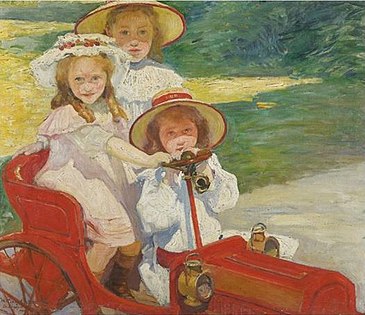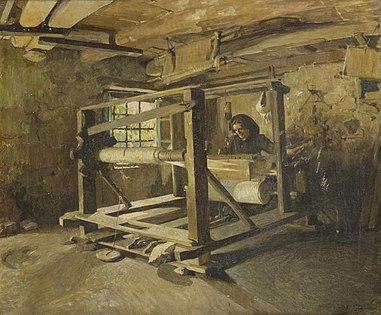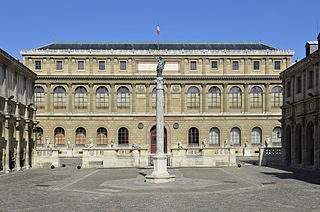
The Beaux-Arts de Paris is a French grande école whose primary mission is to provide high-level arts education and training. This is classical and historical School of Fine Arts in France. The art school, which is part of the Paris Sciences et Lettres University, is located on two sites: Saint-Germain-des-Prés in Paris, and Saint-Ouen.
Georges Gimel, was a French expressionist painter of portraits, landscapes, mountain landscapes, still lifes and flowers. He was also a wood carver, lithographer, illustrator, set designer, sculptor, and enamel painter.

Achille Zo was a French painter of Basque origin. He painted in the academic style with many historical works and genre scenes, especially from Spain.
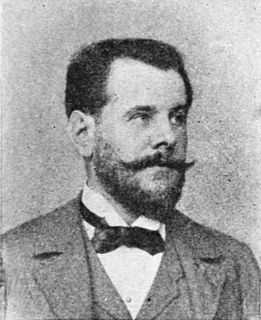
Paul Édouard Rosset-Granger was a French genre and portrait painter who adopted the academic style.

Charles-Théodore Frère was a French Orientalist painter.
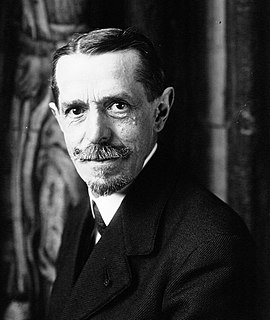
Marcel-André Baschet was a French portrait painter, notable for his numerous portraits of the Presidents of the French Third Republic.

Pierre Lacour, originally Delacour was a French painter.

André Victor Édouard Devambez was a French painter and illustrator, notably of children's books.
Jean-Baptiste Jules Trayer was born in Paris in 1824 and died in 1909. He was a French painter. He signed his works "Jules Trayer".
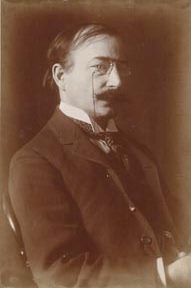
Henri Beau was a French-Canadian Impressionist painter. He is noted for Chemin en été, La dispersion des Acadiens, L'arrivée de Champlain à Québec, and Les Noces de Cana. Beau is a largely forgotten artist due to his long absence from Canada. His widow Marie Beau worked towards establishing his reputation as an artist in Canada after his death. He was only recognized as a notable artist decades later, with major retrospectives of his paintings celebrating his career by the Galerie Bernard Desroches in Montréal in 1974, and at the Musée du Québec in Québec City in 1987.

Claire Bertrand-Eisenschitz, also known as Claire Bertrand, was a French expressionist artist born in Sèvres on 22 June 1890. She died on 8 December 1969. She was the wife of the painter Willy Eisenschitz, also a French painter and draftsman.
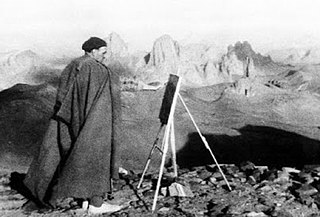
Paul Élie Dubois was a French Orientalist painter; identified with the "École d'Alger".

Édouard Frédéric Wilhelm Richter was a French painter who specialized in genre and Orientalist scenes.

Antoine Auguste Adrien Henri Tanoux was a French painter.

René François Xavier Prinet was a French painter and illustrator who drew his subjects from middle-class society.

Jean-Pierre Laurens was a French painter; primarily of figures and portraits.

François Schommer was a French painter, watercolorist and decorative artist.
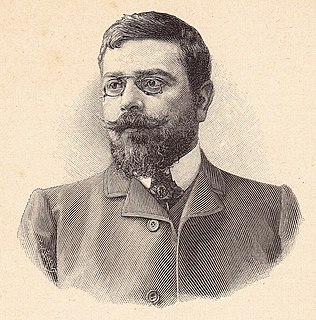
Henri-Achille Zo was a French painter and illustrator of Basque ancestry. His work was part of the art competitions at the 1928 Summer Olympics and the 1932 Summer Olympics.
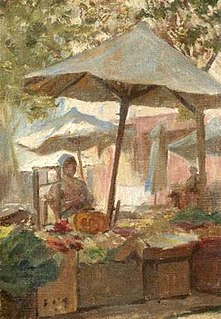
Gérard Clément-Brun was a French portrait and cityscape painter. Some sources give his year of birth as 1867 or 1868.
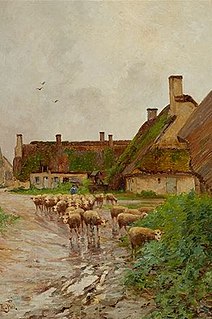
Édouard Pail was a French landscape and animal painter; primarily of sheep.

